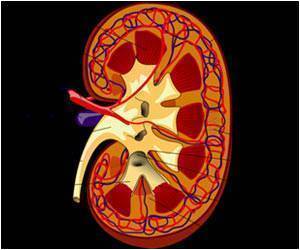A newly developed, non-invasive bio-marker could help identify patients with kidney rejection symptoms caused by antibodies after transplants.
- A non-invasive bio-marker has been developed to identify patients with antibody-mediated kidney rejection symptoms caused after transplants
- Identification could be done through a blood test rather than a biopsy
- The research team plans to develop it further for use in hospitals through a commercial venture.
Detecting Rejection after Kidney Transplants
Following a kidney transplant it is recommended that patients take medications in order to suppress their immune system. Despite this, kidney rejections occur frequently and a biopsy is usually used by doctors to determine the rejection. The rejection can be antibody-mediated or T-cell mediated. Biopsy is an uncomfortable process that involves using a needle to remove a small piece of tissue from the transplanted kidney and examining it with the help of a microscope. It also can lead to complications such as bleeding and this sometimes can lead to even graft loss. Additionally, the symptoms of rejection are very often recognized late, and effectively treating the patient is not always a possibility. Kidney transplant patients of the University Hospitals Leuven in Belgium normally undergo a kidney biopsy three months, one year and two years after their transplant. A biopsy however, can detect rejection symptoms that are present only at that particular moment. Rejection, on the other hand could occur at any time other time too. Furthermore, the current detection methods are unable to detect around 10-20 percent of rejections that lead to graft failure which in turn would require reinitiating dialysis and another transplant.The Study
Research in kidney transplantation has been focusing on finding biomarkers that would detect organ rejection through a blood test, for several years now. A study from Europe based out of four university hospitals in Leuven, Paris, Hannover and Limoges, headed by nephrologists from KU Leuven, has been able to find such a biomarker.This is the first time that a biomarker for kidney transplant rejection by ANTIBODIES has been found however, biomarkers in the blood for T cell-mediated rejection is already available in practice. Unlike rejection by T cells, which is treatable, rejection with antibodies has only very few treatment options available.
“Rejection by HLA antibodies often has serious consequences,” says Professor Maarten Naesens, the principal investigator of the study and a Nephrologist at the University Hospitals Leuven. “Traditional tests for assessing the function of transplanted kidneys can often only identify rejection when it is already chronic and irreversible. Thanks to our biomarker, we can detect rejection much earlier and with a simple blood test. Because the test is less invasive, we will be able to test more often than with the current biopsies,” he added.
The study was divided into three phases. In the first phase, a genome-wide study was performed among 117 patients with and without kidney rejection symptoms after a transplant, to find out differences in RNA molecules. The different molecules of another group of 183 patients were processed into a mathematical model in the second phase. Eight RNA molecules that are measured with an RT-PCR technique comprise the final biomarker. The biomarker was validated in 387 patients from the four European academic hospitals in the third phase.
Using the Biomarker in the Future
Dr Elisabet Van Loon, part of the Nephrology and Kidney Transplantation research group at KU Leuven said, “In addition to developing the biomarker, that third phase was very important.” She further added that, “Researchers are often satisfied with a new discovery, even though they are unable to test it in independent clinical studies. Thanks to international cooperation, we could validate our biomarker in a large group of patients. That gives us a lot of confidence in the clinical value of the new biomarker.”The next step for the research team is to hold discussions with medical diagnostic companies about further developing and standardizing the tests. Professor Naesens commented that, “In principle, our antibody rejection test has been sufficiently validated for commercialization. This is the next and necessary step to be able to offer the test to patients. With the test, patients who have no rejection of antibodies will no longer have to undergo a biopsy. The biomarker will also help to detect rejection sooner and will support the search for better medicines against rejection by antibodies.”
Reference:
- Development and validation of a peripheral blood mRNA assay for the assessment of antibody-mediated kidney allograft rejection: A multicentre, prospective study - (https://doi.org/10.1016/j.ebiom.2019.07.028)
Source-Medindia
















